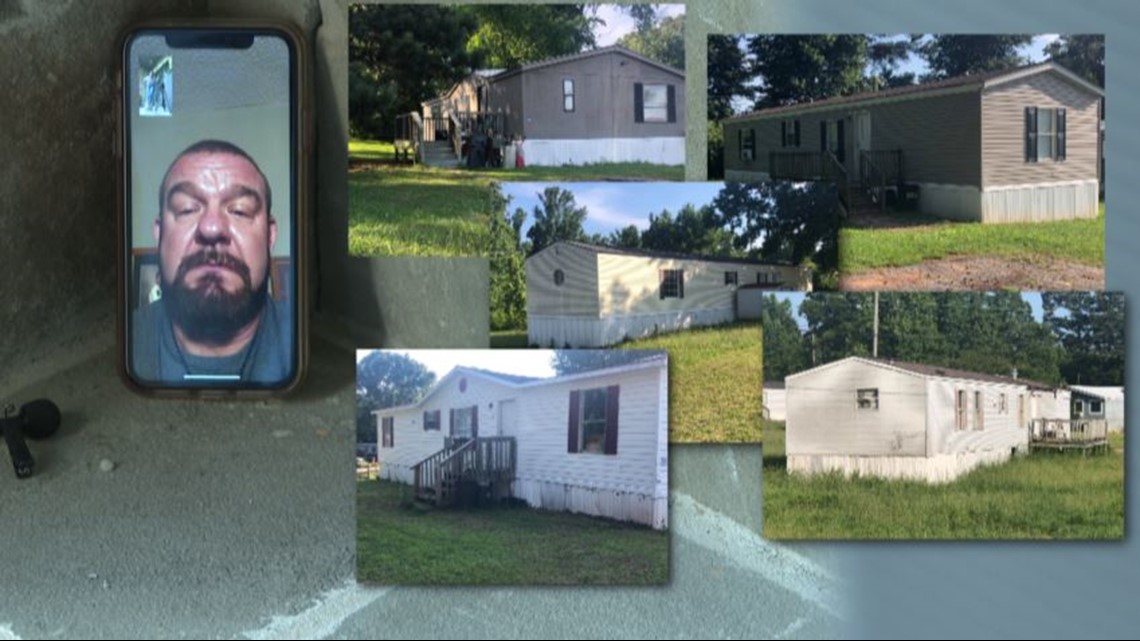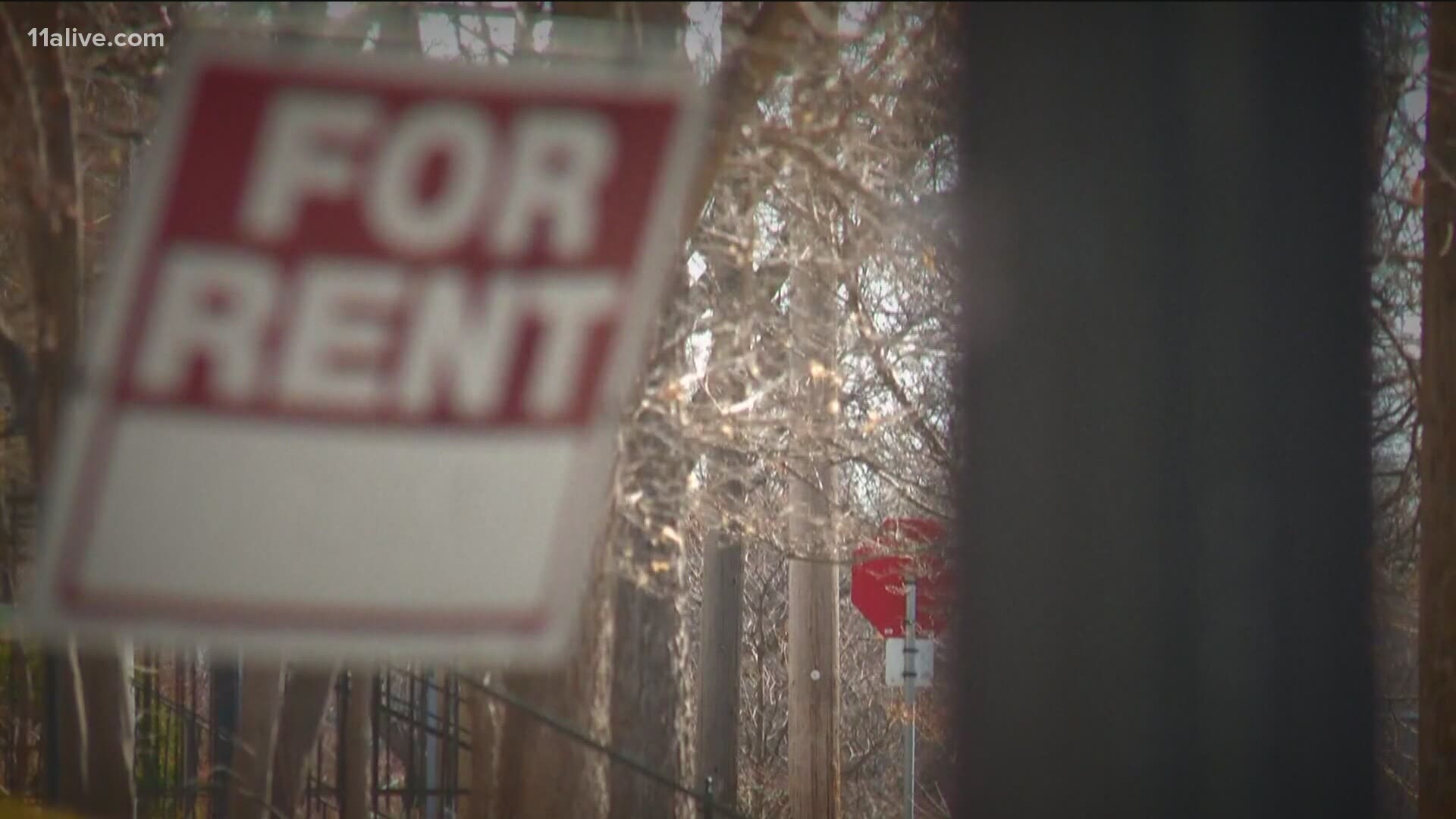ATLANTA — The eviction moratorium is extended once again - this time, through July 31. The ban was set to expire next week and officials worried this would come with a flood of evictions.
The Biden administration is now saying this is the "final month" it will extend the policy.
According to the U.S. Census, some seven million tenants are currently behind on their rent, so they're feeling some temporary relief. As for landlords, like Rick Vickers, however, it's a different story.
"There's always the thought of them just moving and not paying a cent," he said. "That's happened to me a lot."
Vickers, who relies mostly on the income from his 35 rentals in Griffin - most of which are mobile homes - said he hasn't received rent from about half of his tenants. He said he's out about $40,000 since the start of the pandemic.


"Through all of this, we still have been required and expected to pay the taxes on our rental property, the upkeep, the maintenance and I even provide the utilities for mine also, so that's all still had to be paid whether or not the rent gets paid to us," he said.
Vickers just had a baby a few months ago and worries this 30-day extension will only make matters worse for him and his family.
"I'm not rich by any means," he said. "In my opinion and the opinion of every single landlord I've talked to at this point, it's gone on too long. It needs to end. I think we're just allowing people that are going to take advantage of us, to take advantage of us and it's legal."
But experts like John Gainey with Atlanta Legal Aid said this extra time can also help landlords work with their tenants to figure their situation out.
"Now, all those folks that were expected to be put out immediately after those hearings have a whole 'nother month to try to negotiate with their landlords and obtain rental assistance that's been allocated by the federal government," he said. "That process can take several weeks - every day is important that the moratorium is extended."
Experts say the $46 billion in emergency rental assistance has been slow at getting into the hands of those hardest hit, so they say this extension could help renters work with their landlords and vice versa.
"While the moratorium is extended, this means landlords have more time to work with tenants in obtaining rental assistance," he said. "Tenants are pursuing that assistance best they can but really that's something landlords should be doing as well because they're the ones looking to receive this money through assistance."
Every second counts, but Monica Delancy, who helps provide rental and utility assistance for Georgians through her organization We Thrive Riverside Rental Association, says evictions were a problem even before COVID-19.
"Before the pandemic, Cobb County was wall-to-wall with evictions," she said.
Delancy believes there need to be more long-term solutions to correctly solve this, especially for Black and Hispanic households, which are twice as likely to report being at risk of eviction, according to the Joint Center for Housing Studies.
"Six months assistance? No. That's not enough," she said. "We're going to have to keep our foot on the gas to make sure long-term solutions are put in place," she said. "We need ways to make sure that we stabilize this community so we can keep our children fed and going to school because, at the end of the day, if they don't have a place to live, we can't do anything else in the community."
Delancy's organization helps renters complete any paperwork they need for assistance. She said a lot of people coming to her for help are waiting until the last minute when they're months behind on rent.
To reach her, you can call 770-369-6531.
You can check here for resources you can rely on if you need help as a homeowner or renter.

